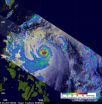(Press-News.org) Conflicts and misunderstandings frequently arise between individuals from different cultures. But what makes cultures different; what makes one more restrictive and another less so?
A new international study led by the University of Maryland and supported by the National Science Foundation's Division of Behavioral and Cognitive Sciences offers insights that may help explain such cultural differences and bridge the gaps between them.
Published in the May 27 issue of the journal Science, the study for the first time assesses the degree to which countries are restrictive versus permissive and it all comes down to factors that shape societal norms.
The researchers found a wide variation in the degree to which various societies impose social norms, enforce conformity and punish anti-social behavior. They also found the more threats experienced by a society, the more likely the society is to be restrictive, the authors say.
"There is less public dissent in tight cultures," said University of Maryland Psychology Professor Michele Gelfand, who led the study. "Tight societies require much stronger norms and are much less tolerant of behavior that violates norms."
"Tight" refers to nations that have strong social norms and low tolerance for deviation from those norms, whereas another term, "loose," refers to nations with weak social norms and a high tolerance for deviation from them.
Gelfand and colleagues found that countries such as Japan, Korea, Singapore and Pakistan are much tighter whereas countries such as the Ukraine, Israel, Brazil and the United States are looser.
"Is important, within our view, to be mindful that we don't think that either culture is worse or better," said Gelfand.
She and her colleagues examined cultural variation in both types of societies.
"We believe this knowledge about how tight or loose a country is and why it is that way can foster greater cross-cultural tolerance and understanding," said Gelfand. "Such understanding is critical in a world where both global interdependence and global threats are increasing."
The researchers surveyed 6,823 respondents in 33 nations. In each nation, individuals from a wide range of occupations, as well as university students, were included. Data on environmental and historical threats and on societal institutions were collected from numerous established databases. Historical data--population density in 1500, history of conflict over the last hundred years, historical prevalence of disease outbreaks--were included whenever possible, and data on a wide range of societal institutions, including government, media and criminal justice, were obtained.
"You can see tightness reflected in the response in Japan to the natural disasters recently," said Gelfand referring to the massive earthquake and tsunami that hit the country on March 11 of this year.
"The order and social coordination after the event, we believe, is a function of the tightness of the society," Gelfand said, noting that tightness is needed in Japan to face these kinds of ecological vulnerabilities.
The research further showed that a nation's tightness or looseness is in part determined by the environmental and human factors that have shaped a nation's history--including wars, natural disasters, disease outbreaks, population density and scarcity of natural resources.
Tight and loose societies also vary in their institutions, with tight societies having more autocratic governments, more closed media and criminal justice systems that have more monitoring and greater deterrence of crime as compared to loose societies.
The study found that the situations that people encounter differ in tight and loose societies. For example, everyday situations--like being in a park, a classroom, the movies, a bus, at job interviews, restaurants and even one's bedroom--constrain behavior much more in tight societies and afford a wider range of behavior in loose societies.
"We also found that the psychological makeup of individual citizens varies in tight and loose societies," Gelfand said. "For example, individuals in tight societies are more prevention focused, have higher self-regulation strength and have higher needs for order and self-monitoring abilities than individuals in loose societies."
These attributes, Gelfand said, help people to adapt to the level of constraint, or latitude, in their cultural context, and at the same time, reinforce it.
The research team combined all these measures in a multi-level model that shows how tight and loose systems are developed and maintained.
Gelfand said knowledge about these cultural differences can be invaluable to many people--from diplomats and global managers to military personal, immigrants and travelers--who have to traverse the tight-loose divide.
"When we understand why cultures, and the individuals in those cultures, are the way they are, it helps us to become less judgmental. It helps us to understand and appreciate societal differences."
###
END
As predicted, Typhoon Songda intensified and was a super typhoon with wind speeds estimated at over 130 knots ( ~145 mph) when NASA's TRMM satellite passed directly over head on May 26, 2011 at 0806 UTC (4:06 a.m. EDT).
The Tropical Rainfall Measuring Mission (TRMM) satellite captured the heavy rainfall rates within the super typhoon using TRMM's Visible and InfraRed Scanner (VIRS) instrument. The rainfall analysis from TRMM's Microwave Imager (TMI) and Precipitation Radar (PR) data showed that Songda had a circular eye with extremely heavy rainfall (as much as 2 inches/50 ...
The more advanced the electronics, the more power they use. The more power they use, the hotter they get. The hotter they get, the more likely they'll overheat. It doesn't take a rocket scientist to understand what typically happens next: The electronics fry.
In the world of electronics, thermal control is always one of the limiting factors -- particularly in space where there is no air to help cool down electronic components.
However, Jeffrey Didion, a thermal engineer at the NASA Goddard Space Flight Center in Greenbelt, Md., and Dr. Jamal Seyed-Yagoobi, a professor ...
On October 18, 2010, 1-800-GET-THIN announced that they had joined forces with the Lifetime Network throughout the month of October, teaming up in support of Breast Cancer Awareness. The ultimate goal of the Breast Cancer Awareness campaign is to emphasize the importance of self-examinations as well as professional breast examinations and encourage them to be proactive with their health care.
It is also important for women to be educated and aware of the signs and symptoms that could indicate a health problem. When cancer is detected earlier, there may be a better chance ...
The results of this study, conducted in Germany, re-open the debate on whether it is ethical to conduct placebo-controlled studies where patients in the placebo-group are at a serious disadvantage compared to patients taking the new treatments. The study analysed current study designs, for new therapies such as abatacept (Orencia®), golimumab (Simponi®) or tocilizumab (Actemra®), and showed that patients in the placebo group experienced no change in medication, having to continue with their former, ineffective treatment plus placebo.
"According to the Helsinki-Declaration ...
Only three percent (n=181) of patients in the study cohort receiving anti-tumour necrosis factor agents (anti-TNFs) for treatment of their arthritis developed a first cancer within nine years and overall risk was not dependent on the type of arthritis.
The nine year follow-up study conducted at Gentofte University Hospital, Denmark demonstrated that relative risk ((RR)=1.03 (95%confidence interval 0.82-1.30)) was not increased in patients treated with anti-TNFs compared to patients who had never taken anti-TNFs during 23,965 person-years follow-up. Overall cancer risk ...
Results of a study, involving 98,454 patients demonstrated that at 30 days following their first heart attack, RA patients were approximately 20% less likely to be prescribed standard MI treatments, such as statins and betablockers, compared to healthy patients. These finding remained relatively unchanged at 180 days, further highlighting differences between the two groups, with a high number being prescribed the current standards of care within the 180 day period (statins 80%, betablockers 82%, clopidogrel 70%, aspirin 79%) in general.
"Previous research has established ...
Results demonstrate that 91% of RCTs recording this kind of FCOI achieved a positive - outcome, compared to 66.7% of RCTs without specific FCOI (p=0.02) and adjusting for confounding factors did not change this finding.
Results of this American study demonstrate that between the two periods 2002-3 and 2006-7 there was a significant increase in the number of RA RCTs listing lead authors as receiving consulting fees/honoraria (14.6% in the first time period compared to 40% in the second (p=0.004)). FCOIs including research grants, employment by sponsoring pharmaceutical ...
Scientists from the University of Warwick have discovered why a newly found form of cholesterol seems to be 'ultra-bad', leading to increased risk of heart disease. The discovery could lead to new treatments to prevent heart disease particularly in people with type 2 diabetes and the elderly.
The research, funded by the British Heart Foundation (BHF), found that 'ultrabad' cholesterol, called MGmin-low-density lipoprotein (LDL), which is more common in people with type 2 diabetes and the elderly, appears to be 'stickier' than normal LDL. This makes it more likely to attach ...
The cross-Channel operator, which whisks customers and their cars from Folkestone to Calais in just 35 minutes, is official travel partner for The EuroChampsChallenge, which is a celebration of every team that's ever won European football's leading club tournament, The Champions League, and its predecessor, The European Cup.
The team behind the challenge set off by car on Sunday 15 May from Celtic FC in Glasgow and is travelling to the ground of every past winner - covering 7,000 miles, visiting 21 football clubs in 16 countries in just 14 days.
The team is travelling ...
For over seven years Aperio Training has been a leader in offering online training and education in the Internet marketing, SEO, and web design/development arena is now going to be offering their most popular WordPress classes on weekends to help working individuals receive the opportunity to enroll and take their constantly booked WordPress Training.
The new schedule for these upcoming weekend WordPress Training classes will be posted on the company's interactive training calendar hosted on their website for students to select which class will fit their schedule best. ...



